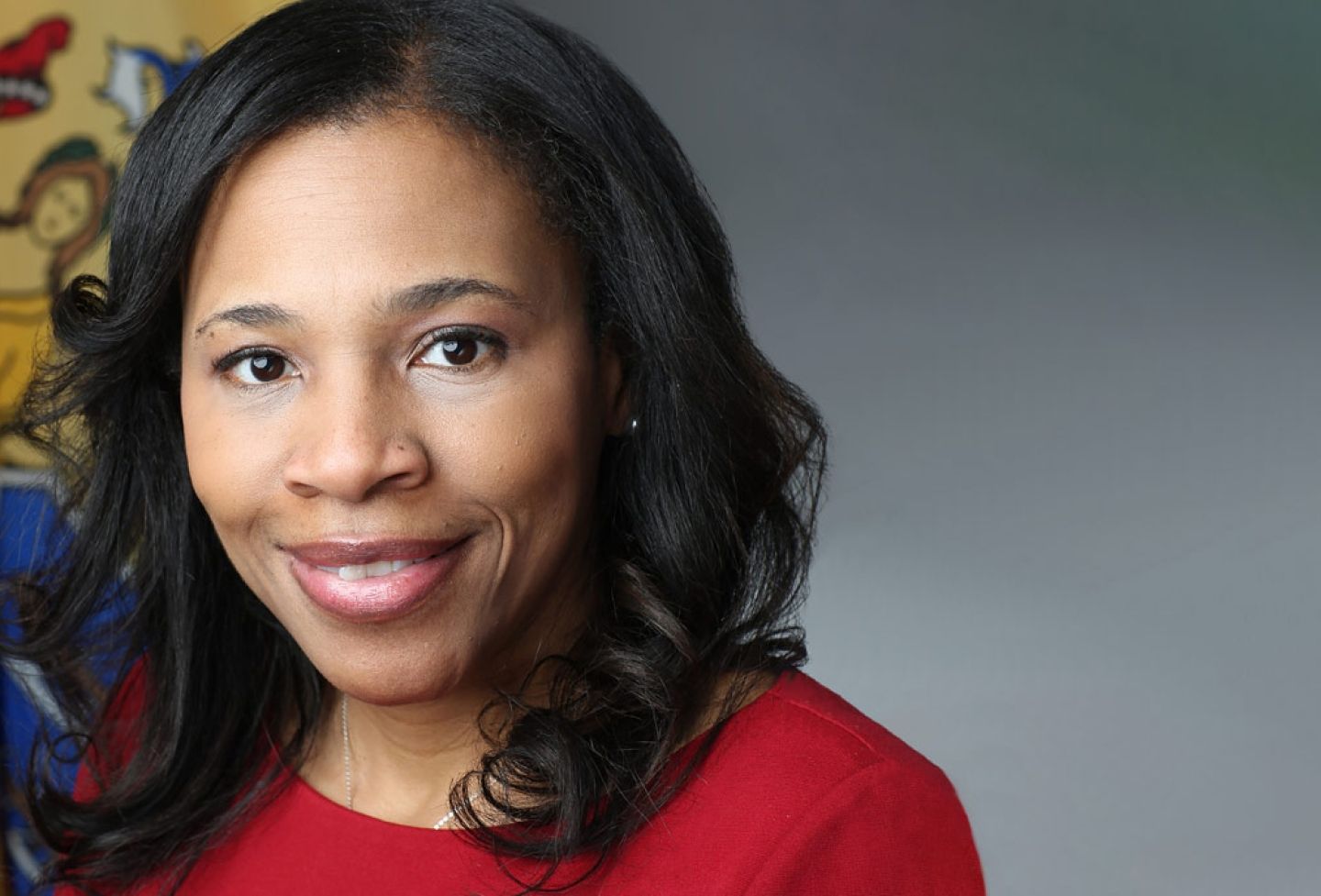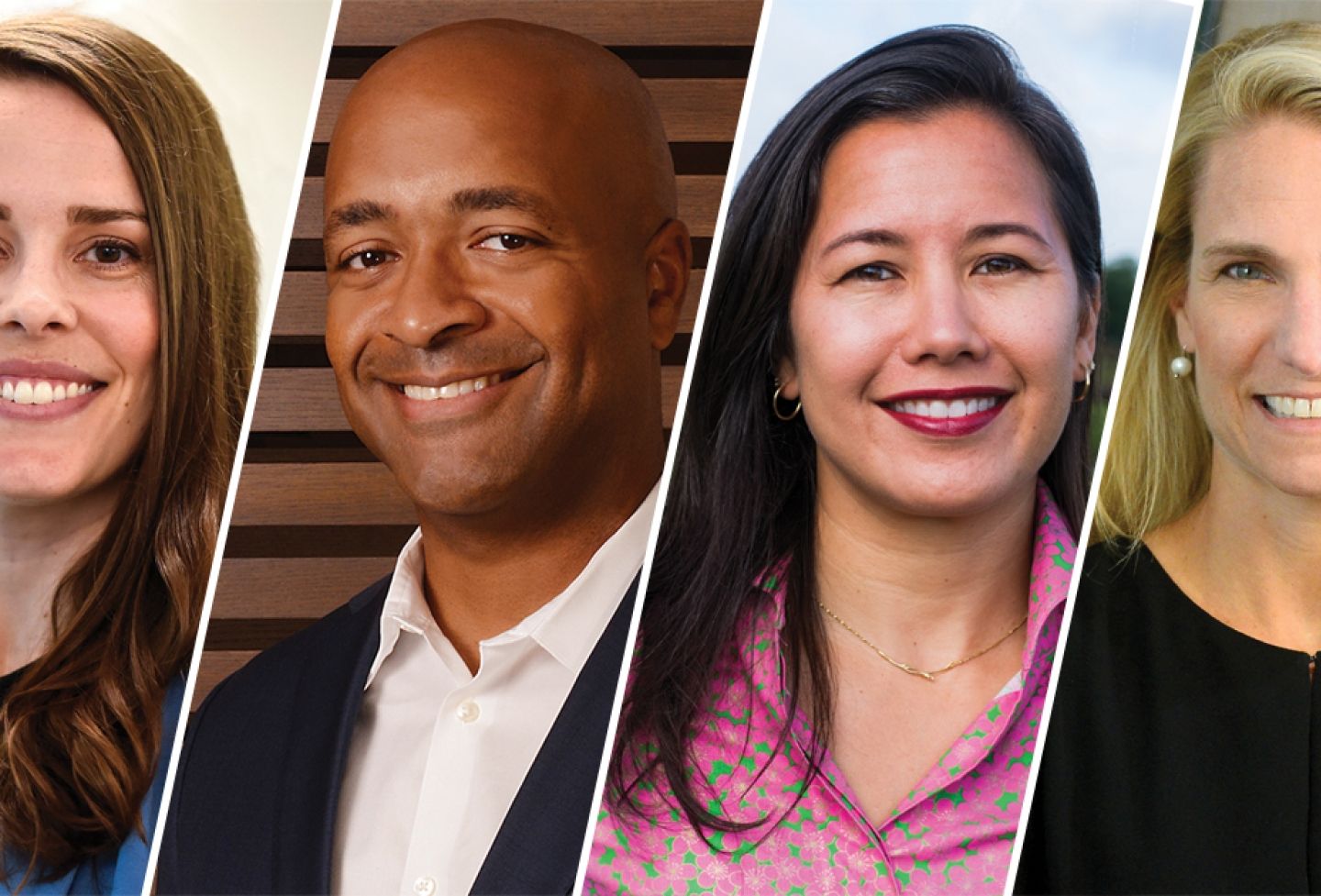In Memoriam: Mortimer Caplin ’40, Public Servant and Professor Emeritus, Dies At 103
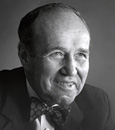 Mortimer Caplin ’40, a professor emeritus who served as IRS commissioner under President John F. Kennedy, died July 15, just days after reaching his 103rd birthday.
Mortimer Caplin ’40, a professor emeritus who served as IRS commissioner under President John F. Kennedy, died July 15, just days after reaching his 103rd birthday.
Caplin taught at UVA Law for 33 years and was co-founder of the widely influential Washington, D.C., tax law firm Caplin & Drysdale.
Caplin had a deep commitment to public service and was a lifelong supporter of education, including at UVA. The “Double Hoo” earned his Bachelor of Science in 1937 and his LL.B. from the Law School in 1940.
“My father was a wonderfully kind man, full of zest for everything,” his son Michael Caplin ’76 said. “He believed deeply that everyone has a debt of service to their country, and he lived his life with purpose and a commitment to the common good. I know his spirit will continue to nourish and inspire everyone who knew him.”
Shortly after Kennedy’s election in 1960, Caplin, who had taught at UVA Law since 1950, was asked to join the President’s Task Force on Taxation. He and the Kennedys were already familiar. Caplin had taught the president’s brothers, future public servants Robert Kennedy ’51 and Ted Kennedy ’59.
“I didn’t wait very long to give the answer,” Caplin recalled in a spring 2016 article for UVA Lawyer honoring his 100th birthday.
The opportunity led to him being appointed U.S. commissioner of internal revenue in 1961. During his tenure, he aspired to create a kinder, friendlier IRS. He hoped Americans would, in turn, look at paying their taxes as a cheerful civic duty.
“We put the emphasis on better self-assessment, and not so much on putting people in jail,” he told UVA Lawyer.
Notably, Caplin was also the first commissioner to computerize federal tax returns, and was the first to host a president at the IRS building, according to The Washington Post.
He appeared on the cover of Time magazine in 1963 to discuss his government role. He remained in the post until July 1964, when he resigned to form his law firm with Douglas D. Drysdale ’53.
“Our style of practice was aimed at minimizing our clients’ tax liabilities without compromising the ethical principles that are essential to the integrity of the tax system,” the two founders wrote in a message on the firm’s website.
Drysdale died last year, at 94.
Despite entering private practice, Caplin continued to teach at the Law School from 1965 to 1988 as a visiting professor.
As an undergraduate, he was an intercollegiate boxer and dabbled in acting. Later, he was editor-in-chief of the Virginia Law Review, and graduated first in his law class.
After graduation he served as a law clerk for Armistead M. Dobie 1904, then a judge on the Fourth U.S. Circuit Court of Appeals (and later a dean of the Law School). Caplin then practiced law in New York City from 1941 to 1950, with time out for military service in the U.S. Navy during World War II.
During the Normandy invasion, Caplin served as U.S. Navy beachmaster, and was cited as a member of the initial landing force on Omaha Beach.
He earned an S.J.D., an advanced law degree designed for aspiring academics, from New York University School of Law in 1953.
Caplin’s lifelong dedication to service, including within education, was extensive. He served as trustee of the University of Virginia Board of Visitors and the UVA Law School Foundation, and with many other groups on UVA Grounds and beyond.
At UVA Law, Caplin’s charity is reflected in Caplin Auditorium, where a painting of the famously bow-tie clad alumnus hangs outside, and in Caplin Pavilion, the Caplin Reading Room and the Mortimer Caplin Public Service Center, which coordinates fellowships in his name.
He and his wife, Ruth Sacks Caplin, who died in 2014, donated the funds for the Ruth Caplin Theater on Grounds.
The couple had five children: Michael, Jeremy, Cate, Mary Ellen and Lee Caplin ’72.
Caplin’s service and accomplishments were recognized by many awards, including the Thomas Jefferson Medal in Law in 2001; the medals are the University’s highest external honor.
—Eric Williamson
1942
S. Shepherd Tate died May 28, after a long and fulfilling life of service, commitment and devotion to his faith, family, community, profession and nation, his family reports. Born in December 1917 in Memphis, Tenn., Tate was the second of five children. During his early years, the effects of the Depression caused his family to move from Memphis to Tunica County, Miss., but Tate remained in Memphis with his grandfather, Stonewall J. Shepherd 1879. His family believes that those challenging Depression years had an indelible impact on Tate’s life, as he shared his grandfather’s small home with 11 other family members. He worked a paper route, which allowed him to pay for a week of Boy Scout Camp during the summers, and he excelled in his scouting experience, creating a lifelong passion for the Boy Scouts. At age 13, he was awarded his Eagle Scout badge by one of the founders of the Boy Scouts and was recognized as the youngest Eagle Scout in the history of the Chickasaw Council. His grandfather gave him an Eagle Scout ring that day, and he wore it proudly the rest of his life.
Tate attended Southwestern at Memphis, working at times as the secretary for Dr. Peyton Rhodes, the college’s president.
While at the Law School, Tate served as an editor of the Virginia Law Review; was inducted into the Raven Society, Omicron Delta Kappa Fraternity, Phi Delta Phi International Legal Fraternity and the Order of the Coif; and graduated second in his class in 1942.
Tate immediately enlisted in the Navy and ultimately was stationed in China as an intelligence officer, working with the allied Chinese military in preparation for the invasion of Japan. He was awarded the Order of the Cloud Banner by the National Government of the Republic of China. Tate remained in the Naval Reserves until he retired as a commander.
Judge John D. Martin asked Tate to clerk for him on the Sixth U.S. Circuit Court of Appeals after the war, and he spent a year with the judge, traveling from Memphis to Cincinnati, where the court was located. There he met and fell in love with Janet Graf. The two were married in 1947.
When his judicial clerkship concluded, Tate returned to Memphis and joined Judge Martin’s son, John D. Martin Jr. ’32, in the practice of law, and he remained at Martin, Tate, Morrow & Marston until he retired from the active practice of law in 2008 at age 90.
Among other accolades, Tate received the Lawyer’s Lawyer Award from the Memphis Bar Association and the Alumnus of the Year Award from the National Conference of Bar Presidents.
Never idle, Tate earned his private pilot’s license at age 67 and kept a boat on the Mississippi River, which he worked on during many weekends into his 80s. Tate was predeceased by his wife, Janet, and his daughter Adele, and is survived by his son and daughter.
1957
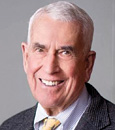 Leigh Middleditch, a co-founder of UVA’s Sorensen Institute for Political Leadership, won the institute’s inaugural Founder’s Award in March. The nonpartisan institute was founded in 1993 to promote bipartisanship, study public policy issues and support ethics in public service. There are now nearly 2,000 graduates of its various programs, according to its website. Middleditch retired from McGuireWoods in 2018 after nearly 60 years with the firm, including many years as a vice president at McGuireWoods Consulting. He previously served on UVA’s Board of Visitors and as the legal adviser to the University. He also held the position of lecturer at the Law School and at the Darden School of Business and is co-author of “Virginia Civil Procedure.” Middleditch has taken leadership roles in numerous business, law and health care organizations serving the commonwealth. He is the founder of OneVirginia2021: Virginians for Fair Redistricting.
Leigh Middleditch, a co-founder of UVA’s Sorensen Institute for Political Leadership, won the institute’s inaugural Founder’s Award in March. The nonpartisan institute was founded in 1993 to promote bipartisanship, study public policy issues and support ethics in public service. There are now nearly 2,000 graduates of its various programs, according to its website. Middleditch retired from McGuireWoods in 2018 after nearly 60 years with the firm, including many years as a vice president at McGuireWoods Consulting. He previously served on UVA’s Board of Visitors and as the legal adviser to the University. He also held the position of lecturer at the Law School and at the Darden School of Business and is co-author of “Virginia Civil Procedure.” Middleditch has taken leadership roles in numerous business, law and health care organizations serving the commonwealth. He is the founder of OneVirginia2021: Virginians for Fair Redistricting.
1960
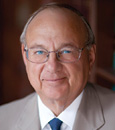 Richard Silver, senior partner of Silver Golub Teitell in Stamford, Conn., received the Lifetime Achievement Award from the Connecticut Law Tribune in May. The award is given to an attorney who has left a lasting imprint on the legal community in Connecticut. Silver has long been recognized as a leader of the litigation bar in Connecticut and is still actively practicing.
Richard Silver, senior partner of Silver Golub Teitell in Stamford, Conn., received the Lifetime Achievement Award from the Connecticut Law Tribune in May. The award is given to an attorney who has left a lasting imprint on the legal community in Connecticut. Silver has long been recognized as a leader of the litigation bar in Connecticut and is still actively practicing.
1963
Bayard DeMallie II was posthumously inducted into the Worcester Academy Hall of Fame in May. DeMallie served as a trustee, president of the board of trustees and parent of three academy alumni. Before his death in 1997, he was the managing partner of Worcester, Mass., law firm Mirick, O’Connell, DeMallie and Lougee, and practiced business and banking law. He was a graduate of Deerfield Academy, Williams College and the Law School.
1964
Friends of Terrence K. Martin let UVA Lawyer know that he was the subject of a 2018 article in the Oyster Pointer. Making “news” was Martin’s love of playing Santa Claus. “I am Santa Claus,” he says in the piece. Martin said it’s easy to get caught up in the excitement shown by local children. He played Santa at Busch Gardens for four years and a local women’s club for 10. He maintains his flowing white beard year-round, even though another great hobby of his is playing the harmonica. Martin has a solo law practice based in Newport News, Va.
Scott Merritt writes that he suffered a stroke but that he is getting better.
1966
Susie Stuart Campbell Drake died Feb. 17 at her home in Lynchburg, Va. After practicing law in Winchester for a few years, Drake became the first female assistant commonwealth’s attorney in Virginia, in Lynchburg. While serving as a prosecutor, she refused to recommend or to seek the death penalty but routinely sought and obtained long prison terms for anyone accused of a violent crime who decided to proceed to trial. After working as a prosecutor, Drake established her own civil and criminal practice in Lynchburg and surrounding counties.
Once she could no longer stand for long periods of time, Drake handled Social Security cases before administrative law judges and argued in the Western District of Virginia for low-income people seeking federal benefits. She practiced law until age 70.
Her son, Stuart Drake, writes, “It should go without saying that the Law School made the difference in my mother’s life, and in my own. She was a single mother and was able to support herself and me, notwithstanding the fact that her starting salary in 1966 at a good firm in the Valley was the same as that of legal secretaries. But that is not the full story. More than just seeing to herself and to me, she loved the practice of law and (by all accounts) became a strong trial lawyer, likely the first woman trial lawyer in many of the courts in which she appeared.”
William G. Eckhardt retired after a 30-year Army judge advocate general career and 25 years as a law professor at the University of Missouri Kansas City School of Law. Eckhardt is now an emeritus professor.
1967
Richard Wilson “Dick” Young died March 2. Young, husband of Margaret Mapp Young and a resident of Accomac, Va., passed away at the family’s seaside retreat on Bunting Point in Wachapreague.
Young was able to attend UVA on scholarships, graduating from the Commerce School in 1964, before attending the Law School. He remained a loyal supporter of UVA throughout his life, enjoying longtime friendships, charitable giving and his coveted tailgating spot over the years. Following UVA, Young returned to his home on the Eastern Shore, and began his legal career in Accomac, opening his own private practice. An avid outdoorsman, he enjoyed fishing, boating and hunting — with his wife often by his side. He was a dedicated Little League Baseball and football coach for his three sons for many years.
1968
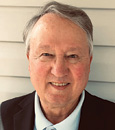 David D. Biklen, an attorney in West Hartford, Conn., has been appointed chair of the new Uniform Law Commission Drafting Committee on Unregulated Transfers of Adopted Children. The ULC is a nonprofit organization, formed in 1892, to create nonpartisan state legislation. More than 350 uniform law commissioners — lawyers, judges, law professors, legislative staff and others — work together without compensation to draft laws ranging from the Uniform Commercial Code to acts on property, trusts and estates, family law and other areas where uniformity of state law is desirable.
David D. Biklen, an attorney in West Hartford, Conn., has been appointed chair of the new Uniform Law Commission Drafting Committee on Unregulated Transfers of Adopted Children. The ULC is a nonprofit organization, formed in 1892, to create nonpartisan state legislation. More than 350 uniform law commissioners — lawyers, judges, law professors, legislative staff and others — work together without compensation to draft laws ranging from the Uniform Commercial Code to acts on property, trusts and estates, family law and other areas where uniformity of state law is desirable.
Hunton Andrews Kurth Special Counsel Allen C. Goolsby has been named to the Virginia Lawyers Hall of Fame. Sponsored by Virginia Lawyers Weekly, the award recognizes Virginia lawyers 60 and older for career accomplishments, contributions to the development of the law in Virginia, contributions to the bar and to the commonwealth at large, and efforts to improve the quality of justice in Virginia.
Hullie Moore is president of the Menokin Foundation, which oversees the ruins of Menokin, a national historic landmark built in 1769 that was the home of Francis Lightfoot Lee, a signer of the Declaration of Independence. After the last of the Lees died in 1797, the house was, for a time, the home of Tayloe Lomax 1829, who was chosen by Thomas Jefferson to be the first professor of law at the University. The foundation is not restoring the ruins — instead it is filling in the missing walls with glass to offer a different kind of museum experience. For more, go to menokin.org.


